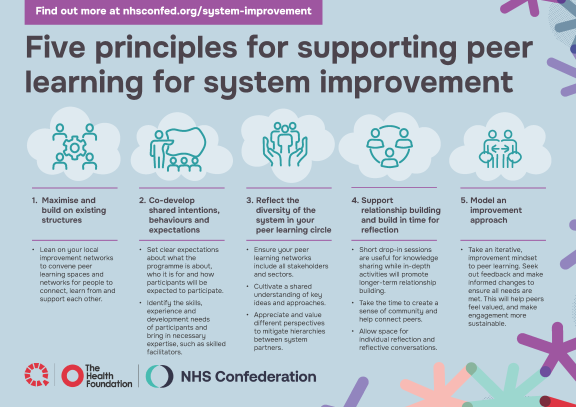1. Maximise and build on existing structures
- Lean on your local improvement networks to convene peer learning spaces and networks for people to connect, learn from and support each other.
2. Co-develop shared intentions, behaviours and expectations
- Set clear expectations about what the programme is about, who it is for and how participants will be expected to participate.
- Identify the skills, experience and development needs of participants and bring in necessary expertise, such as skilled facilitators.
3. Reflect the diversity of the system in your peer learning circle
- Ensure your peer learning networks include all stakeholders and sectors.
- Cultivate a shared understanding of key ideas and approaches.
- Appreciate and value different perspectives to mitigate hierarchies between system partners.
4. Support relationship building and build in time for reflection
- Short drop-in sessions are useful for knowledge sharing while in-depth activities will promote longer-term relationship building.
- Take the time to create a sense of community and help connect peers.
- Allow space for individual reflection and reflective conversations.
5. Model an improvement approach
- Take an iterative, improvement mindset to peer learning. Seek out feedback and make informed changes to ensure all needs are met. This will help peers feel valued, and make engagement more sustainable.




